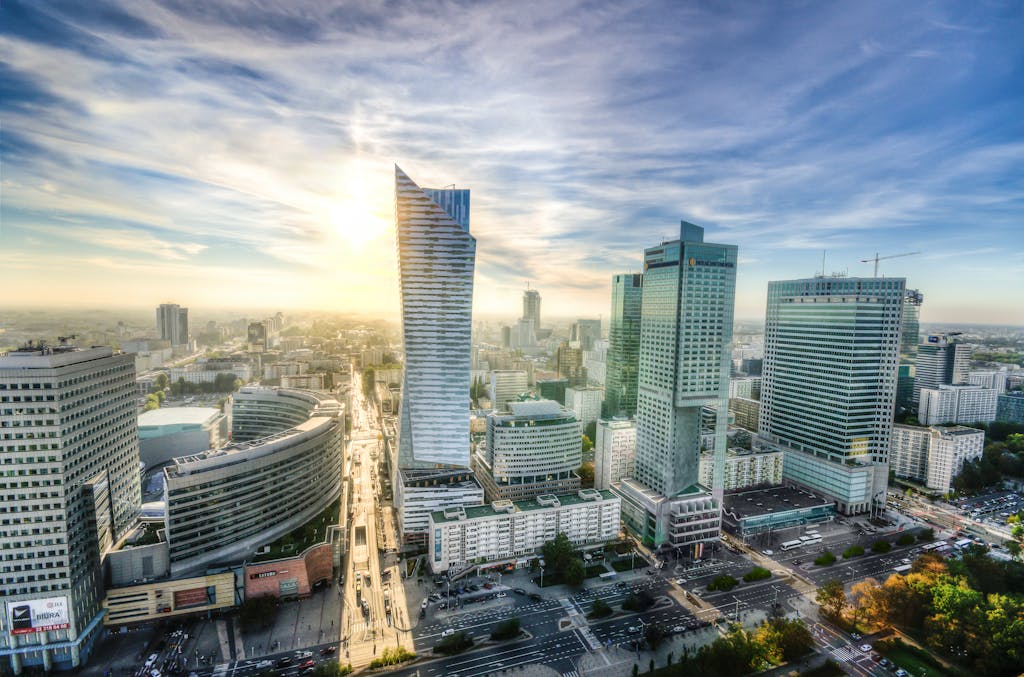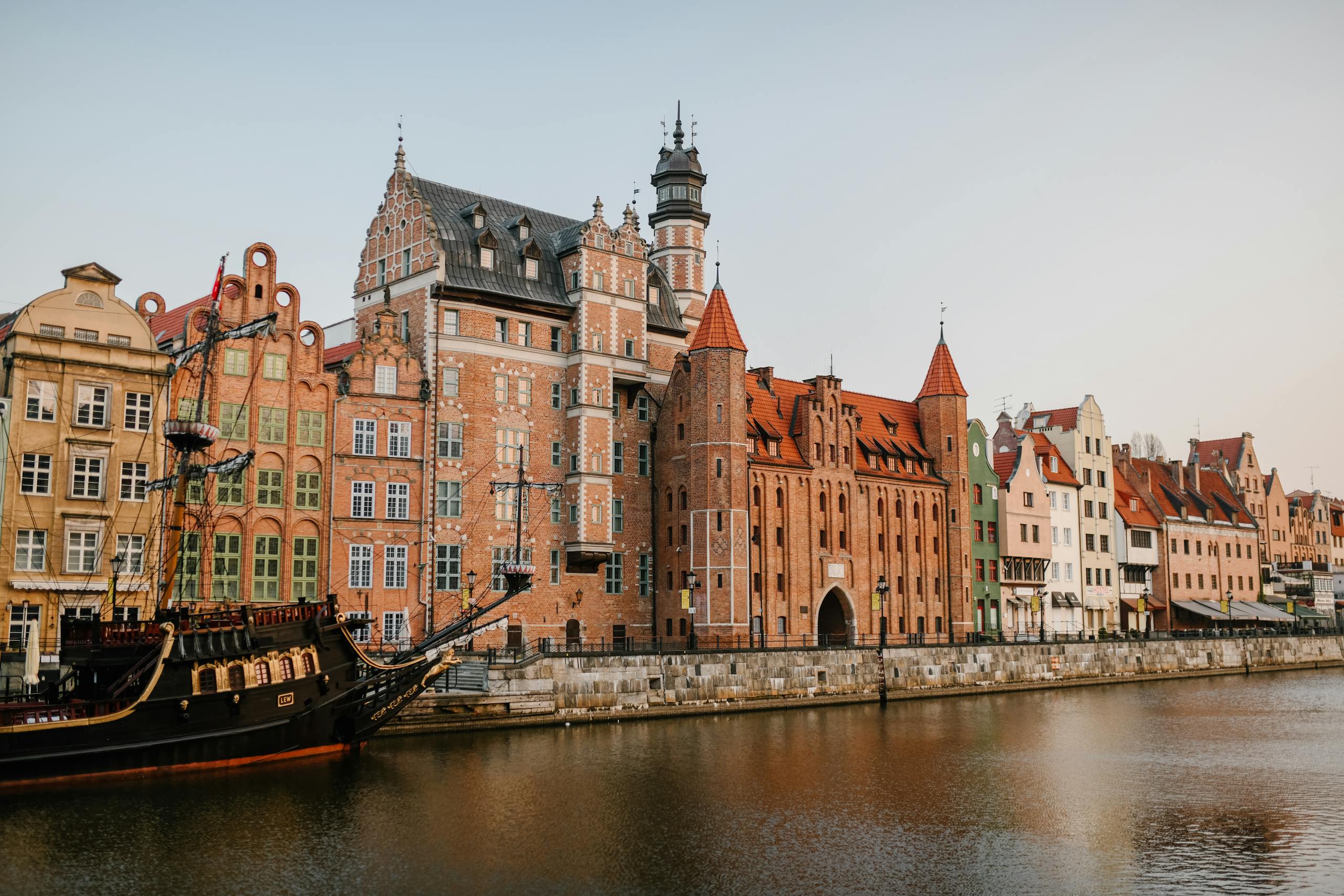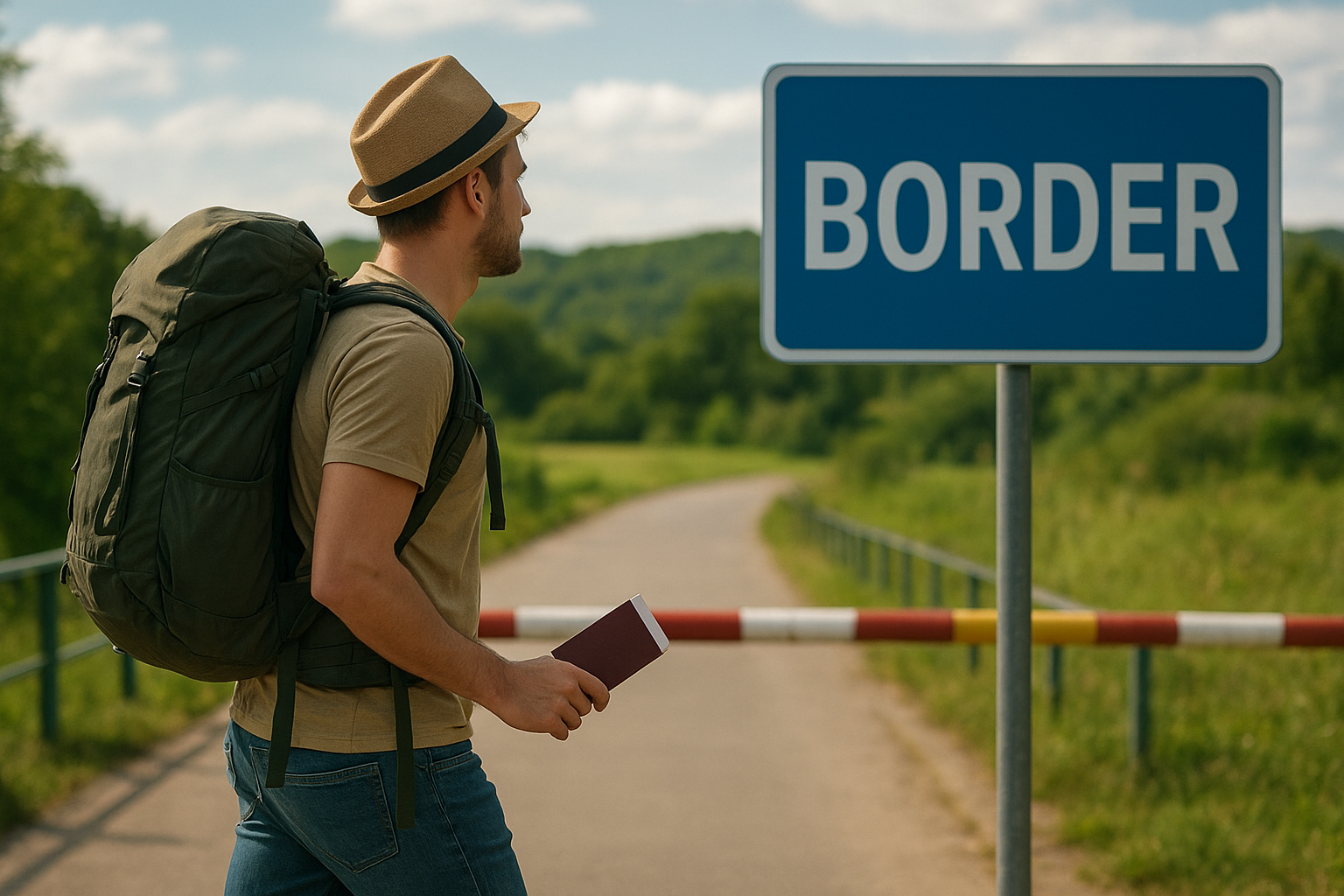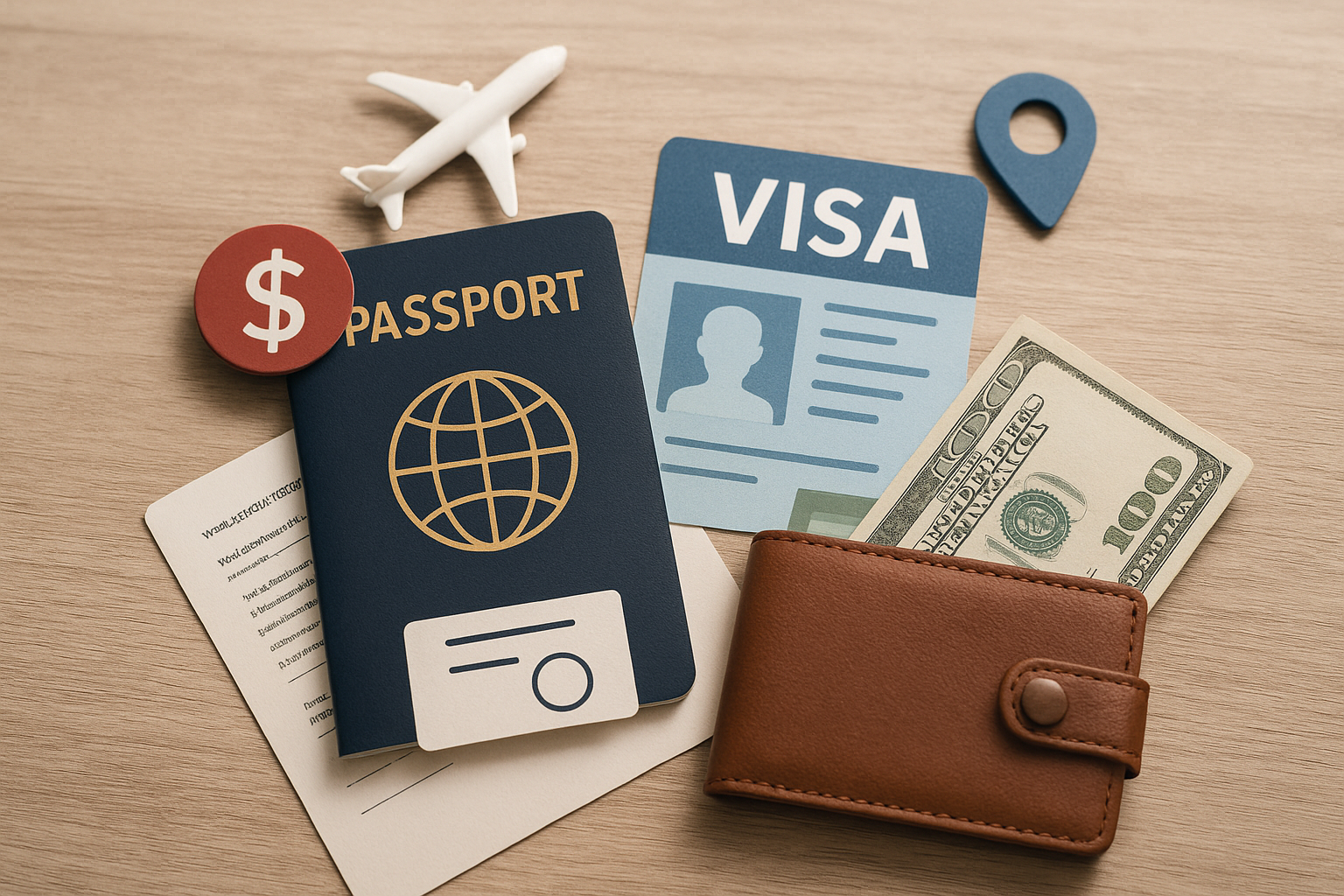Digital Nomad Visa in Poland – Everything You Need to Know
Poland is quickly emerging as a hotspot for digital nomads due to its central location in Europe, rich history, and affordable lifestyle. Although there isn’t a specific digital nomad visa Poland program yet, several visa options can accommodate remote workers who wish to live and work in the country. This guide will walk you through the visa options available, how to apply, and why Poland is an excellent choice for digital nomads looking for a balance of work and leisure.
In addition to visa details, we’ll explore what makes Poland attractive for remote workers, including its cost of living, safety, cultural diversity, and top cities to live in. Whether you’re thinking about moving to Poland temporarily or planning to stay long-term, you’ll find all the essential information here.
Why Poland Is an Ideal Destination for Digital Nomads
Affordable Cost of Living
One of the major draws of Poland is its affordability compared to other European countries. For digital nomads who want to stretch their budget, Poland offers high-quality living at a fraction of the cost you’d find in places like Germany or France. The average cost of rent in Warsaw, Poland’s capital, is between $500 to $800 for a one-bedroom apartment, while in smaller cities such as Kraków or Gdańsk, rent can drop to as low as $400 per month.
A Hub for Remote Work and Co-Working Spaces
Poland’s infrastructure is well-equipped to handle the needs of digital nomads. High-speed internet is widely available across cities, and there’s a growing number of co-working spaces and cafés offering stable Wi-Fi, making it easy to stay connected. Cities like Warsaw, Kraków, and Wrocław have become hubs for remote workers, with a thriving community of freelancers and entrepreneurs.
Poland’s Rich Cultural Heritage
Poland’s deep history and cultural diversity offer endless opportunities for exploration and inspiration. From medieval castles and UNESCO World Heritage sites to modern art galleries and theaters, Poland’s cities are filled with cultural treasures. The country also celebrates numerous cultural festivals, ranging from traditional folk celebrations to contemporary film and music festivals, providing digital nomads with a rich cultural life outside of work.
The Polish cuisine is another highlight. You’ll find traditional dishes such as pierogi (dumplings), żurek (sour rye soup), and bigos (hunter’s stew), alongside modern European and international cuisines, particularly in major cities like Warsaw and Kraków.
Visa Options for Digital Nomads in Poland
Although Poland does not yet have a specific digital nomad visa, remote workers have several options for long and short-term stays. These include the National Visa (D Visa), the Schengen Visa (Type C), and the Temporary Residence Permit.
National Visa (D Visa)
The National Visa, or D Visa, is a long-term visa that allows non-EU citizens to stay in Poland for up to a year. It is a popular choice for freelancers or remote workers who can prove they have sufficient financial means to support themselves.
How to Apply:
- Financial proof: Applicants must submit bank statements or proof of regular income.
- Health insurance: Proof of valid health insurance for the duration of the stay is required.
- Application submission: The application for a D Visa must be submitted through the Polish consulate in your home country. For more detailed information, check the Polish consular services website.
Schengen Visa (Type C)
For short-term stays of up to 90 days, the Schengen Visa is a viable option. This visa allows travel across Schengen countries, including Poland, and is useful for digital nomads who plan to move between countries frequently. However, it’s important to note that this visa doesn’t allow for long-term residency.
How to Apply:
- Financial proof: Bank statements showing sufficient funds are necessary.
- Insurance: Health insurance covering the stay is required.
- Learn more about the Schengen Visa application process.
Temporary Residence Permit
For digital nomads intending to stay longer than a year, a Temporary Residence Permit offers a solution. This permit is ideal for those engaged in freelancing or running their own business in Poland.
How to Apply:
- In-person application: You must apply at the Voivodeship Office in Poland.
- Supporting documents: You’ll need proof of income, a valid work contract or self-employment documentation, and proof of accommodation. Further details are available on the official Polish immigration website.

Discover Poland: Culture, Cities, and Attractions
Warsaw: A Modern Metropolis with Historical Depth
As Poland’s capital and largest city, Warsaw is a fascinating blend of old and new. The city is known for its resilient history, especially its reconstruction after World War II, and today it stands as a bustling urban center with modern skyscrapers and a thriving business district. At the same time, its Old Town is a UNESCO World Heritage site, offering cobblestone streets, colorful townhouses, and the majestic Royal Castle.
Warsaw is also home to a growing number of co-working spaces, modern infrastructure, and excellent public transportation, making it highly convenient for digital nomads. Popular attractions include the Palace of Culture and Science, Lazienki Park, and the Warsaw Uprising Museum.
Kraków: Poland’s Cultural Heart
If you’re looking for a city with a deep historical and cultural atmosphere, Kraków is an ideal destination. Known for its medieval architecture and vibrant arts scene, Kraków offers a rich cultural experience for digital nomads. The city’s Main Market Square is the largest in Europe, and it’s surrounded by historical buildings, including St. Mary’s Basilica and Sukiennice (Cloth Hall).
Kraków is also the gateway to some of Poland’s most famous historical sites, such as the Wieliczka Salt Mine and the Auschwitz-Birkenau Memorial and Museum. The cost of living here is lower than in Warsaw, making it a great option for digital nomads seeking affordability without sacrificing cultural experiences.
Gdańsk: A Coastal Gem
Located on the Baltic Sea, Gdańsk offers a unique coastal experience combined with rich maritime history. As one of Poland’s major port cities, Gdańsk has a distinct atmosphere that sets it apart from the rest of the country. The Old Town is renowned for its Hanseatic architecture, and attractions such as the Neptune Fountain, Gdańsk Crane, and the European Solidarity Centre are must-visits.
For digital nomads who enjoy being near the water, Gdańsk offers a refreshing alternative to Poland’s inland cities. Its proximity to the coast also means access to nearby beach towns like Sopot and Gdynia, perfect for weekend getaways.
Wrocław: The Venice of Poland
Wrocław is often referred to as the “Venice of Poland” due to its numerous rivers and over 100 bridges that connect different parts of the city. The city’s charming atmosphere and lower cost of living make it popular among digital nomads. Wrocław’s Market Square, with its colorful townhouses and gothic Wrocław Town Hall, is a stunning example of Polish architecture.
For those seeking a smaller, more relaxed city to base themselves, Wrocław is an excellent choice. The city is also known for its friendly locals and vibrant café culture, making it easy to meet new people and feel part of a community.
Poland’s Cost of Living and Safety
Poland is considered one of the safest countries in Europe, and its cities offer a high quality of life for digital nomads. The cost of living is much lower compared to other Western European nations, with most digital nomads living comfortably on $1,200 to $1,800 per month.
- Rent: $400–$800 per month depending on the city.
- Groceries: $200–$300.
- Dining out: $5–$10 per meal at a local restaurant.
- Transportation: $25–$40 for a monthly pass.
Public transportation is reliable and well-connected in most cities, and Poland’s healthcare system, though public, offers high-quality care. Many digital nomads opt for private health insurance for quicker access to services.
Poland’s Digital Nomad Future
While Poland does not yet have a dedicated digital nomad visa, the country offers a wealth of opportunities for remote workers through its existing visa options. With its affordable cost of living, rich cultural experiences, and growing digital infrastructure, Poland is quickly becoming a go-to destination for digital nomads. Whether you’re drawn to the modern buzz of Warsaw or the historic charm of Kraków, Poland has something to offer every type of traveler.













